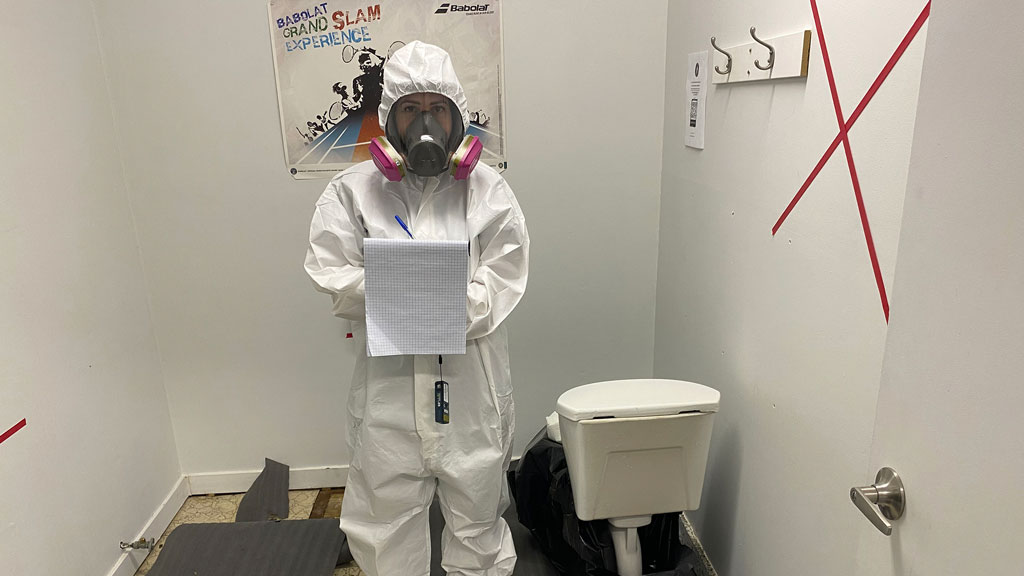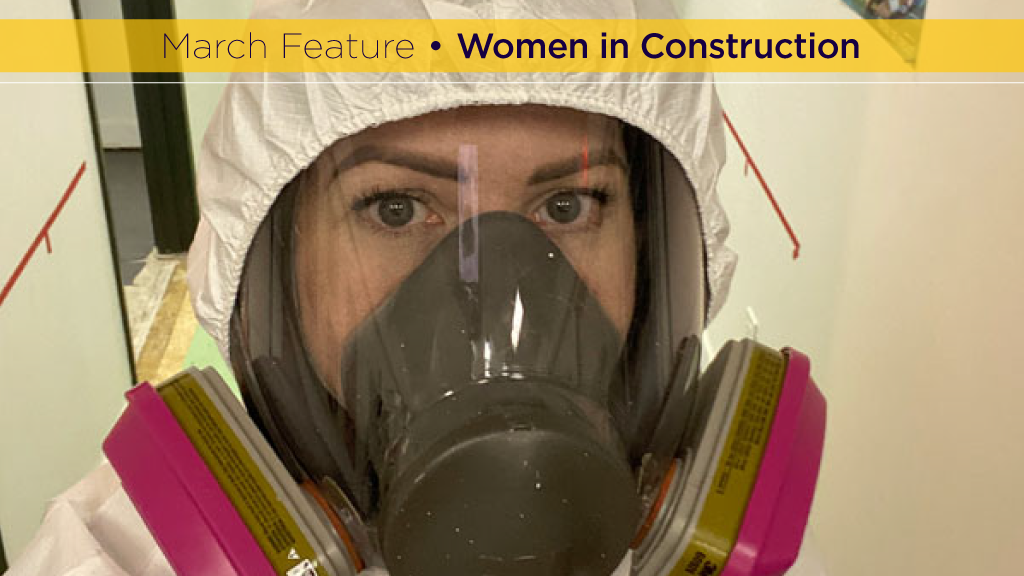Some people come to the construction industry as part of a career plan. Cassandra MacLeod’s introduction to the fire and flood restoration industry began with a flood at the home she was helping to house-sit.
“The owners had left the country, turned off the furnace and the pipes froze,” she recalls. “When we showed up to feed the cats one day it was raining harder inside the house than out. When the restoration company hired by the insurance company arrived they were removing all the wet items, setting up drying equipment and removing drywall. I became really interested in what they were doing.”
MacLeod, age 18 at the time, was asked by the company if she wanted a job listing non-restorable items such as clothing and books. The offer extended into a regular position with the company.
Two years later, she was hired by restoration contractor On Side Restoration in Vancouver.
“I was applying for water damage, but I was put into contents, which is where most of the women in the industry wind up,” she says. “I didn’t enjoy it. I wanted to set up the equipment, dry the buildings and remove drywall like the guys were doing. I was looking to get involved in the construction aspect of the business.”
Three months later the company transferred her to the water damage division, where she became a water damage restoration technician. The position required her to accept emergency calls around the clock, work long hours to extract water from flooded buildings and then devise a plan to dry down the structures using air circulators and dehumidifiers.
After five years in water damage, MacLeod’s next career move saw her joining the company’s remediation department, a position for which she’d been cross-training. The job involves removing hazardous materials containing anything from asbestos to lead and mould.

“The idea of learning about the types of hazards that could exist inside the drywall appealed to me,” she says. “The jobsite would have already undergone a risk assessment and we would need to prepare for anything. The work involves setting up negative pressure containment areas and wearing PPE that could range from half-face to full-face respirators.”
Three years ago, MacLeod moved into the risk assessment department.
“As a foreman, I’m the first one there,” she says. “I determine the risk level of the removal, what kind of equipment we’re going to need, how many people we’re going to need and how the work can be completed safely. I then file a notice of project with WorkSafeBC.”
MacLeod notes one aspect of the job currently receiving increased attention is the possibility that restoration workers may experience post-traumatic stress disorder (PTSD).
“We see people wo have lost everything and at times there’s loss of life,” she says. “The stress can build up without you realizing it and you won’t necessarily even know exactly what brings it on. We need to encourage restoration workers to talk to somebody and seek help if something like this is affecting them.”
On Jan. 1, 2024, B.C. became the first province to establish regulations to certify workers involved in asbestos removal. Last summer MacLeod joined seven On Side Restoration employees who were certified through the BC Construction Safety Alliance’s Asbestos Control Training program — the first group of workers certified anywhere in ���ϳԹ���.
That distinction also made MacLeod the first woman certified in ���ϳԹ��� by default. She notes that during her career beyond the contents department, she would work alongside only one woman at most.
“It’s hard physical work and it can be a little challenging to be the only woman working with a group of men all the time, especially in a high-risk work environment,” she says. “But overall it’s rewarding work.”
She says she enjoys both the technical and human side of the industry.
“I like helping people when it’s obviously a catastrophic day for them,” she says. “They’re distraught, their house is underwater and I’m able to offer them hope that they can move beyond this.”



Recent Comments
comments for this post are closed